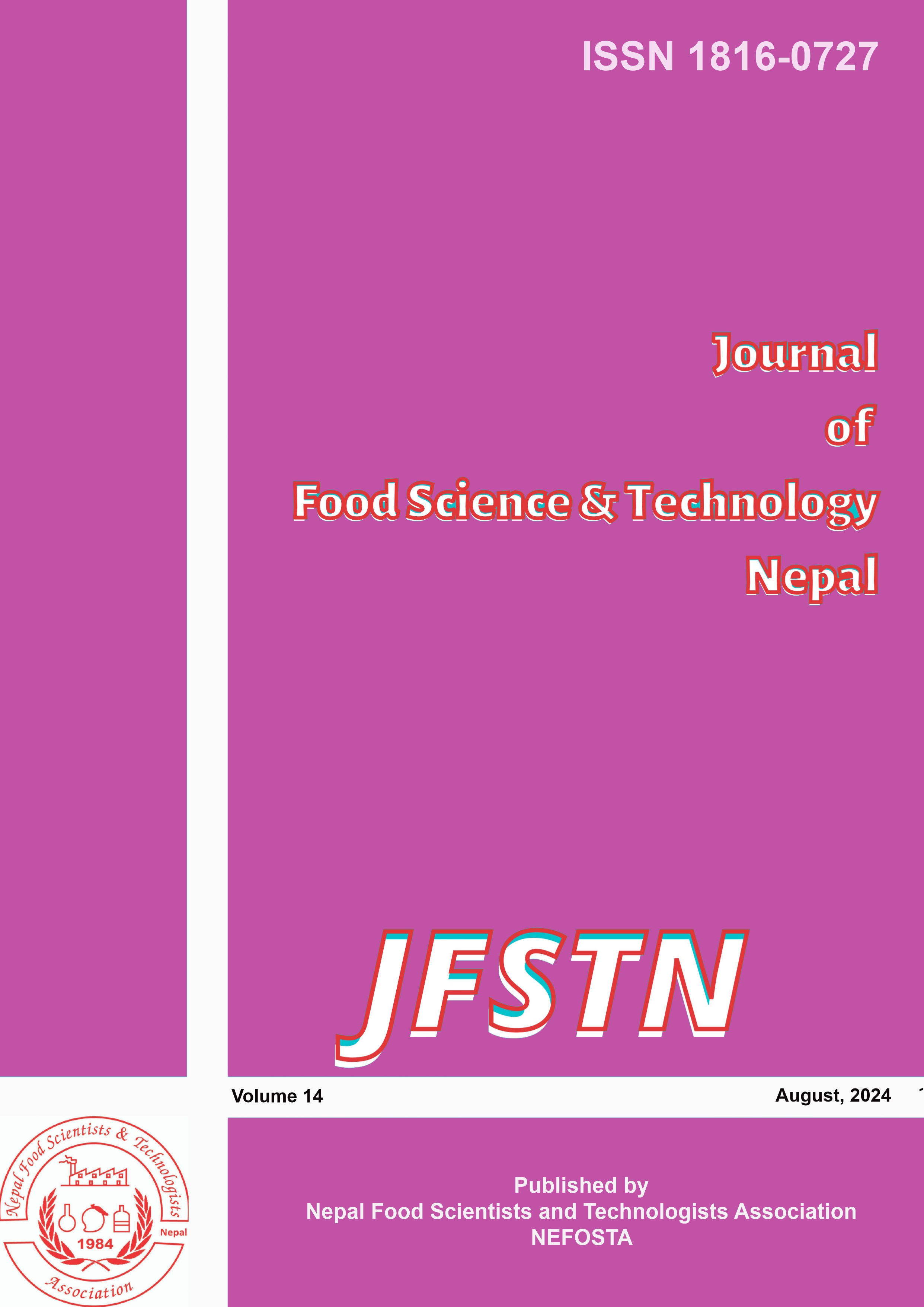Comparative Study on The Effect of Deep Frying on Physiochemical Properties and Qualities of Sunflower (helianthus annuus l.) and Soybean (glycine max) Oil
DOI:
https://doi.org/10.3126/jfstn.v14i14.71698Keywords:
peroxide value, refractive index, acid value, total polar materials, iodine valueAbstract
The study aimed to compare the changes that occur during the deep frying process with refined sunflower oil and refined soybean oil. Both oils were used as a frying media to fry potato strips for 6 h daily for 5 days. Standard procedures for the measurement of oil degradation such as acid value (AV), peroxide value (PV), iodine value (IV), total polar materials (TPM), and refractive index (RI) were used. As a result, significant changes were observed in both oils in terms of chemical properties. Changes in TPM, IV, and AV show higher stability for soybean oil, while changes in RI and PV show more stability in sunflower oil. As RI is not a reliable test for evaluation of the heating process and PV in our test could not reach maximum value so, soybean oil had superior stability than sunflower oil in our test. Using a study of TPM as the main parameter to check the usability of frying oil, there was no significant difference (P>0.05) in the value of TPM between the two oils according to the final day result hence, as per our study sunflower and soybean oil are similar in action for frying purpose. The maximum value of TPM for commercial frying oils is accepted as 25 and our study shows that 12 hours of frying exceeds the limit value of TPM contents.
Downloads
Downloads
Published
How to Cite
Issue
Section
License
The author will be the copyright holder of this open access journal - 'Journal of Food Science and Technology Nepal (JFSTN)'.




